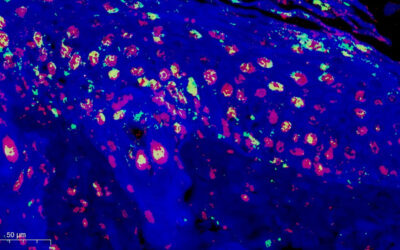Surface modification is one of the most important techniques in modern science and technology, and one of its ultimate goals is to allow for the introduction of desired properties onto any material surface.
To achieve this, two key factors in surface are necessary. First, a molecular glue that can adhere to diverse material surfaces is needed. Second, the adhered glue should be capable of attaching a variety of molecules, determining the final properties of the surfaces. New research has now demonstrated that these two requirements can be achieved in a simple manner. One must only make a solution that contains dopamine, a glue molecule, and the molecules to be immobilized onto surfaces.
The study showed that molecules with a wide range of molecular weight and with a various functional groups are immobilized onto surfaces with ease. Depending on the molecules co-dissolved with dopamine, various functional interfaces for bio- and chemical engineering can be prepared, demonstrating the versatility of the developed method.
















